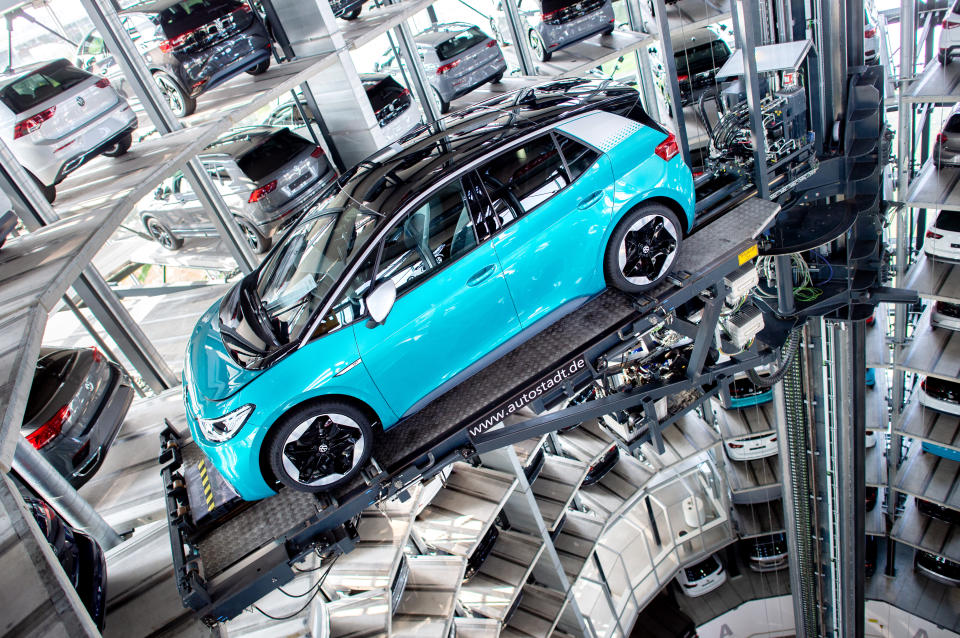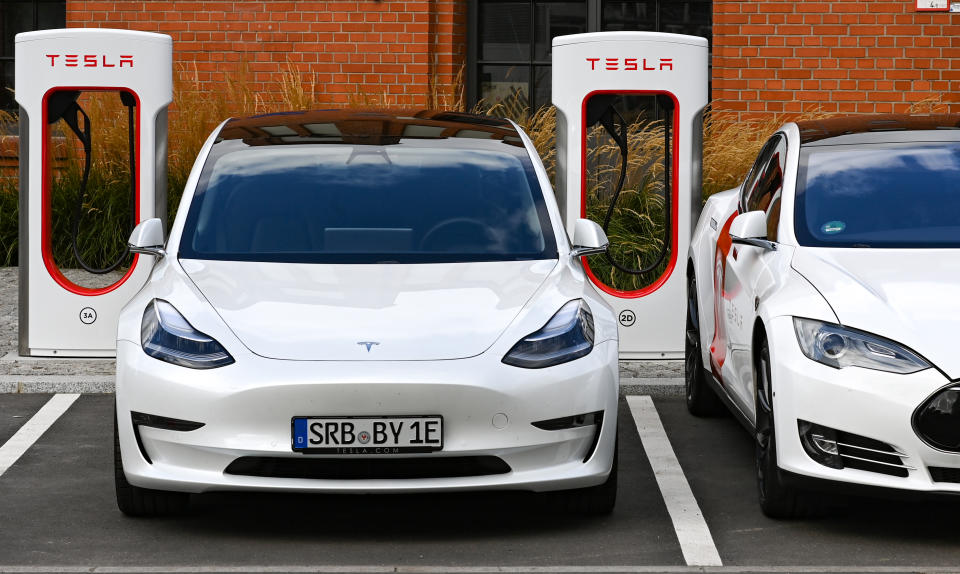Carmakers form CO2 emission pools to avoid hefty EU fines

Europe’s car manufacturers have battled tough times in the past couple of years, from the threat of US tariffs, to slowing demand from China, and then the 2020 double-whammy when coronavirus lockdowns forced factory shutdowns and wiped out months of sales.
Now they are braced for another big headache when the EU’s tough new CO2 emissions regulations come into full force at the start of 2021.
“A new currency has emerged in our industry, and it's called CO2,” Opel chief Michael Lohscheller told Germany’s Handelsblatt newspaper this week. "That is more important than anything else, also more important than sales."
The EU regulations, currently being phased in this year, stipulate that new passenger cars must not emit more than 95g of CO2 per kilometre, averaged over all their new car fleets.
If they exceed that 95g/km limit, they face a fine of €95 ($86, $111) for every gram of CO2 over the limit, multiplied by the number of new cars sold in the previous year. If the fleet is above average weight, the CO2 target can be slightly higher, but not by a lot.
Many traditional automotive companies, some of whom are still mired in the slow migration to electric mobility, will face multibillion-euro fines.
To avoid these, some are paying other car companies to form CO2 pools together so they can bring down their emissions figures. Pooling enables the higher-emitting brands and a less polluting one —which has credits to spare—count as one fleet.
Volkswagen (VOW.DE) will create a CO2 emissions pool in the EU with the SAIC-owed MG Motor until 2022. Volkswagen also pools with its own group brands, such as Seat and Audi.
Fiat Chrysler Automobile (FCAU) announced last year that it would team up with electric carmaker Tesla (TSLA) to help it reach compliance targets. The Financial Times reported in May 2019 that FCA agreed to pay Tesla around €1.8bn (£1.6bn, $2.1bn) to buy emissions credits.
In the second quarter, sales of EV credits to other carmakers made up 7% of Tesla’s total revenue, or $428m.
The European Electric Car Report this week revealed that French carmaker Renault has now decided to open their CO2 emissions pool up to other manufacturers, after it forecast it would meet its 2020 compliance targets “with confidence.”
Matthias Schmidt, the automotive analyst behind the European Electric Car Report, told Yahoo Finance UK that no one knows precisely how much manufacturers are willing to pay to join these newly opened pools.
“There isn’t a fixed price – you can’t define it as 1gram costs €100,000 for example,” Schmidt says, but he notes that whatever they are paying will be a lot cheaper than paying the eye-watering fines for exceeding EU CO2 limits.
“There’s a huge marketing question as well,” Schmidt added. “If OEMs were to miss their CO2 target, it looks very bad in marketing terms. It’s becoming more and more important for CEOs presenting their results to say whether they are CO2 compliant or not.”
Hedging bets against another lockdown

Coronavirus has thrown carmakers’ 2020 sales strategies in disarray this year. As the pandemic hit, lots of manufacturers who had been planning to bring their electric offerings to market in the second half of this year to start bringing down their CO2 averages – like Volkswagen did with its new electric ID3 – have found themselves in a situation where the car market is on its knees and EU lockdowns loom again.
“Their plan was always to wait and make a big push in the second half of the year, but what we’re seeing now, because of corona, is a type of hedge — it’s CO2 hedging,” Schmidt says.
“If a second lockdown comes before the end of the year, they can’t fulfill their strategic plans of bringing all those electric vehicles to market in order to achieve compliance.”
Schmidt notes that although car companies are saying they are prepared to enter a pool with someone else, it does not necessarily mean that they need to, or will definitely miss their CO2 compliance targets, “they are doing it as a safe bet, if you like.”
WATCH: Why Tesla could give VW ‘critical edge’

 Yahoo Sports
Yahoo Sports 